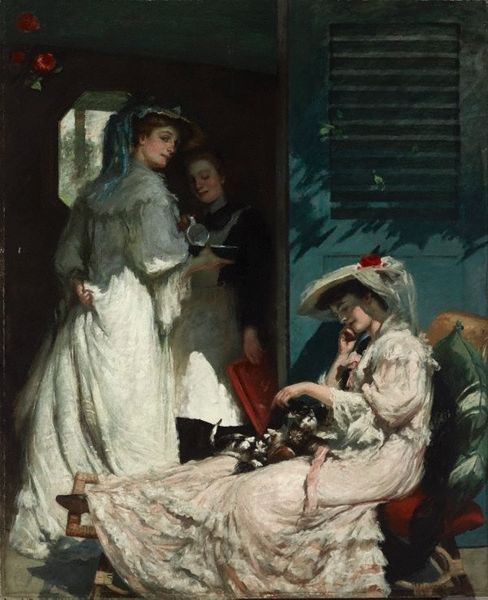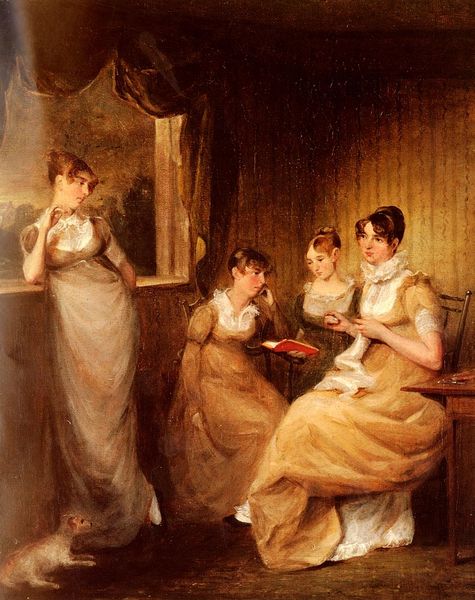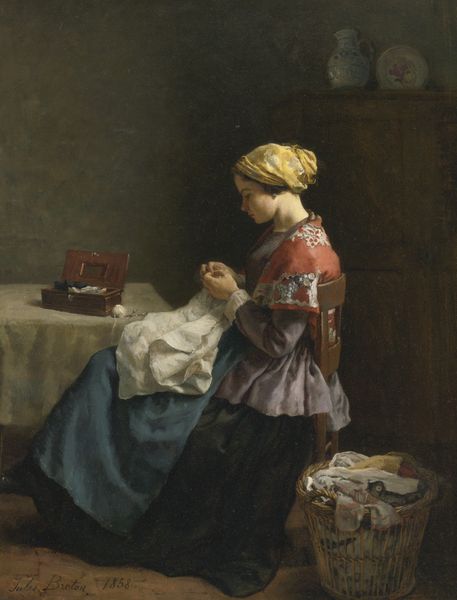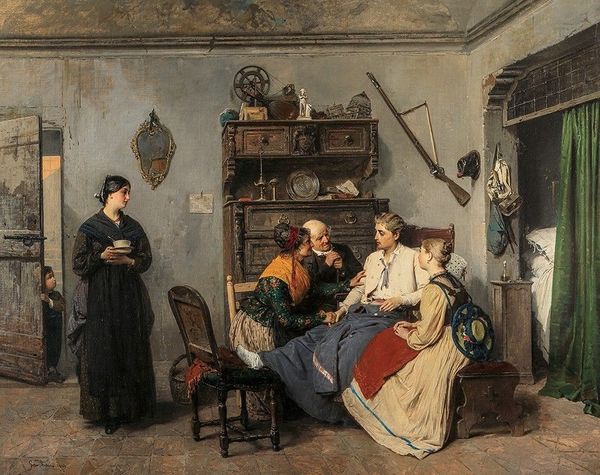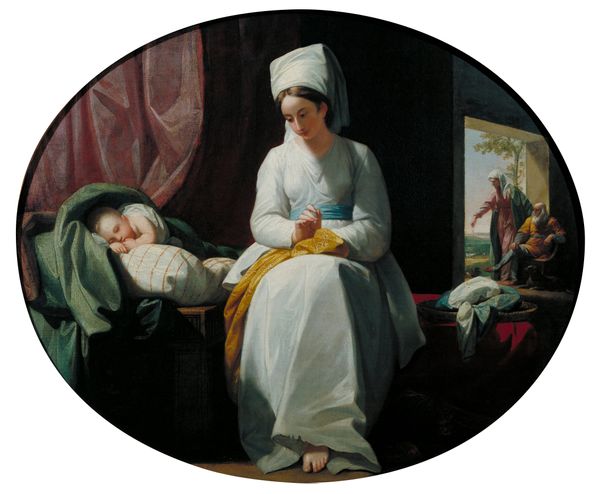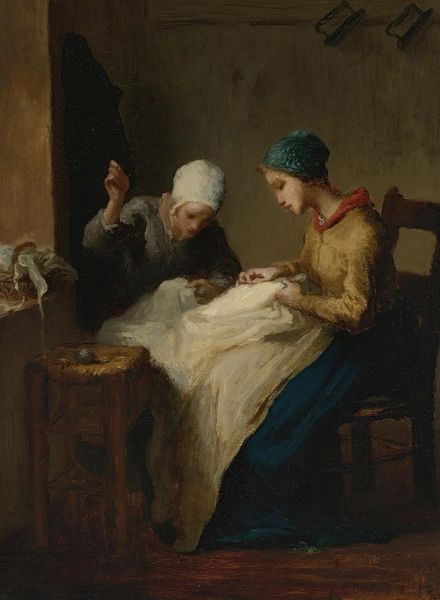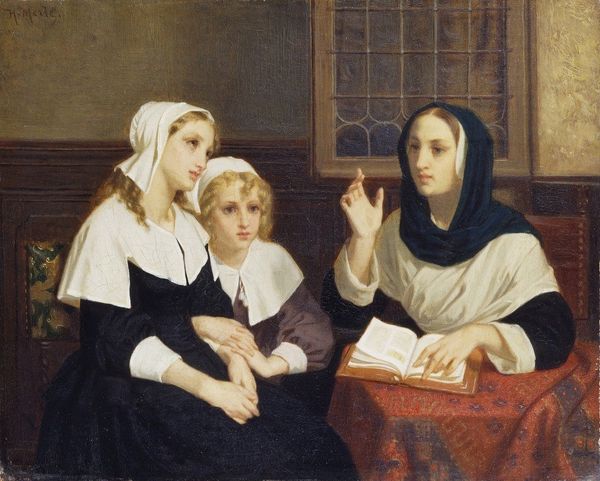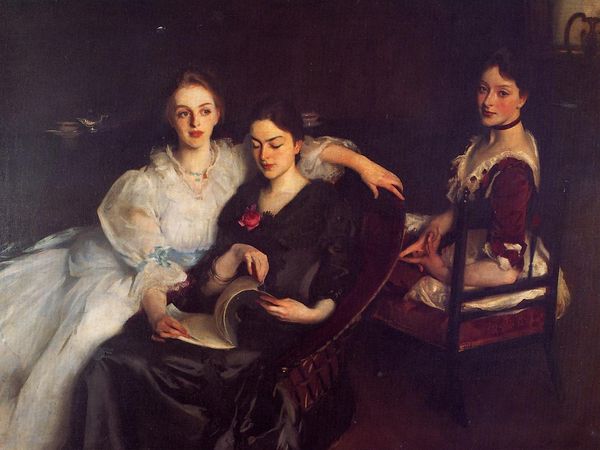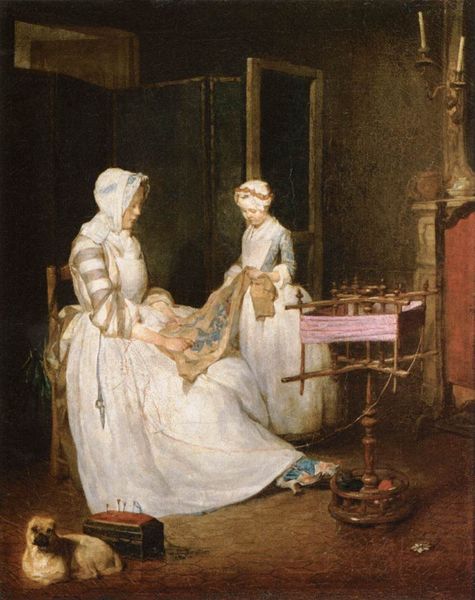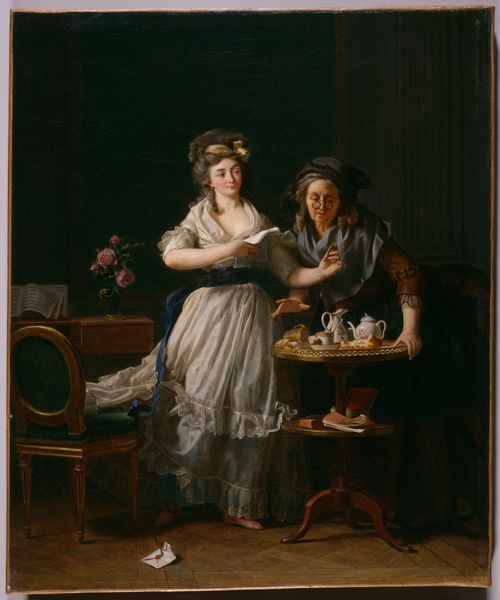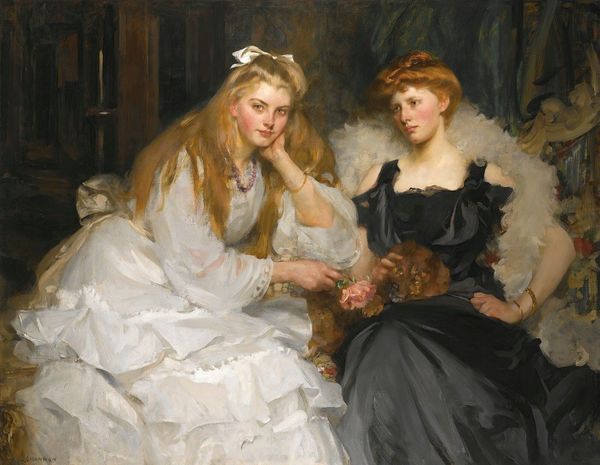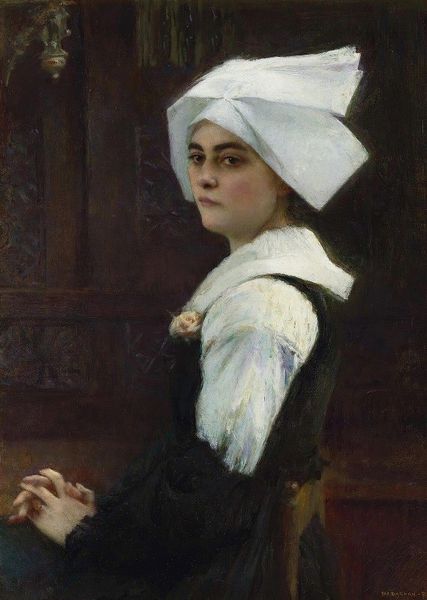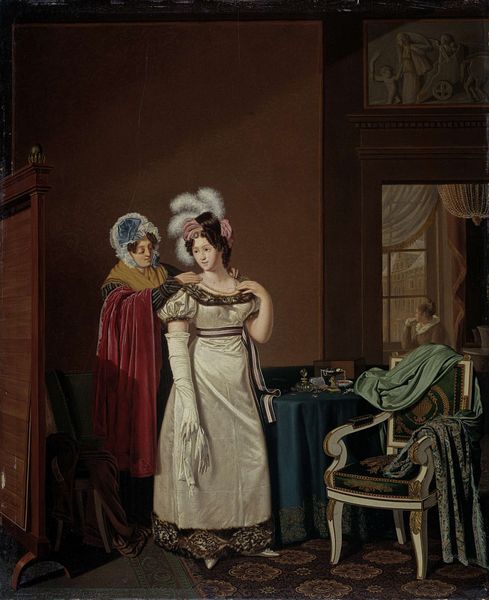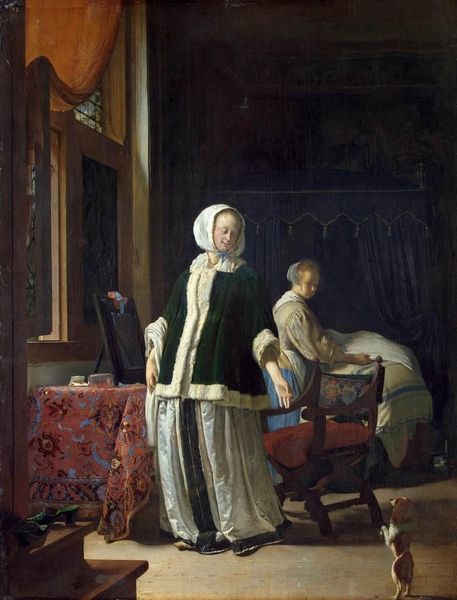
painting, oil-paint
#
portrait
#
figurative
#
character portrait
#
dutch-golden-age
#
painting
#
impressionism
#
oil-paint
#
oil painting
#
portrait reference
#
underpainting
#
group-portraits
#
painting painterly
#
genre-painting
#
facial portrait
#
portrait art
#
fine art portrait
#
realism
#
celebrity portrait
#
digital portrait
Copyright: Public Domain: Artvee
Thérèse Schwartze painted “Three Orphan Girls from Amsterdam” to portray the lives of marginalized young women in the late 19th century. Schwartze, a successful portraitist, likely had an intimate understanding of the rigid social structures and expectations placed on women in her time. The painting offers a glimpse into the cloistered world of these young women, whose identities are largely defined by their status as orphans. They are dressed in the traditional garb of the Amsterdam orphanage, their distinctive clothing marking them as outsiders within Dutch society. While one girl reads, another sews, and a third looks off into the distance, perhaps contemplating a future that seems predetermined. Schwartze captures their quiet resilience, but also hints at the loss and longing that underscores their daily lives. Their lives were circumscribed by the orphanage, and in their faces we can see not only their individual stories, but a reflection on the social conditions that shaped their destinies.
Comments
No comments
Be the first to comment and join the conversation on the ultimate creative platform.
